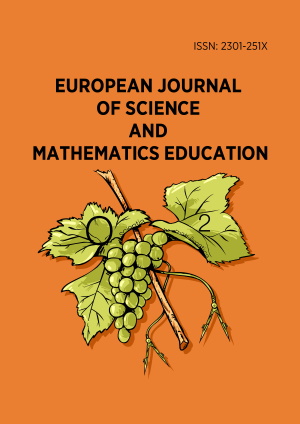Research Article
The impact of guided student-generated questioning on chemistry achievement and self-efficacy of elementary preservice teachers
More Detail
1 Department of Interdisciplinary Learning and Teaching, University of Texas at San Antonio, San Antonio, USA2 College of Sciences, Brown Mackie University, San Antonio, USA* Corresponding Author
European Journal of Science and Mathematics Education, 4(1), January 2016, 1-16, https://doi.org/10.30935/scimath/9448
OPEN ACCESS 2648 Views 1431 Downloads
ABSTRACT
This study investigated the use of Guided Student-Generated Questioning (GSGQ) as a metacognitive instructional strategy to increase chemistry achievement and self-efficacy of elementary preservice teachers. The Chemistry Self-Efficacy Scale (CSES), modified from the Biology Self-Efficacy Scale (BSES),was used to determine elementary preservice teachers’ self-reported confidence in understanding chemistry. Findings indicated that GSGQ was significantly related to an increase in achievement for the topics of water and solubility but not for the topics of chemical reactions or matter. In addition, the use of GSGQ was found not to be significantly related to chemistry self-efficacy.
CITATION (APA)
Moseley, C., Bonner, E., & Ibey, M. (2016). The impact of guided student-generated questioning on chemistry achievement and self-efficacy of elementary preservice teachers. European Journal of Science and Mathematics Education, 4(1), 1-16. https://doi.org/10.30935/scimath/9448


 The articles published in this journal are licensed under the CC-BY Creative Commons Attribution International License.
The articles published in this journal are licensed under the CC-BY Creative Commons Attribution International License.